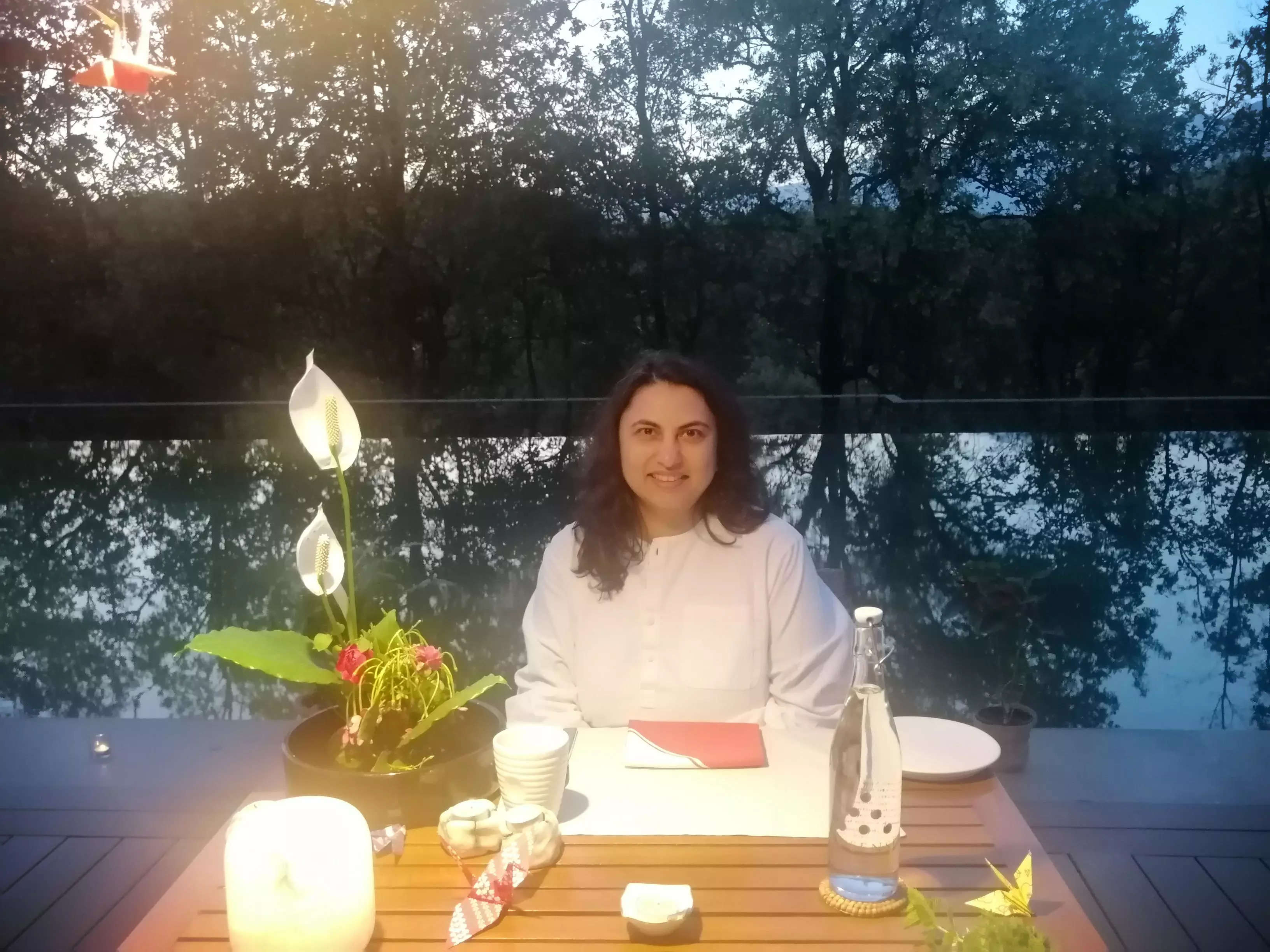
By Anoothi Vishal
In an era dominated by the values of Gen Z consumers, where and how you feel is more important than how you look, it is inevitable that wellness tourism in India should be on an upswing.
In 2020, that watershed year of the pandemic, India had slipped to the 12th spot internationally in a list of the world’s top markets for wellness tourism. However, in the three years since, a spate of new and refreshed luxury offerings have been gaining ground, attracting an increasing number of domestic and international travellers (particularly from Asian markets), who are seeking wellness alongside leisure and luxury.
A recent study by Accor found that travellers for who wellness is a goal spend as much as 55 per cent more than regular leisure travellers. With such demand, and India’s positioning as a traditional spiritual destination, it is no wonder that this summer we are seeing burgeoning interest in travel for wellness to salubrious new or refreshed luxury retreats, set in lush valleys, forests, or on calming coasts.
On offer is a basket of holistic healing – more than traditional Ayurveda-led value products of the past. While Ayurvedic (and naturopathy) treatments do remain the mainstay at most of the retreats, there is a bouquet of other therapies too with underpinnings in often esoteric rituals – from Tibetan Buddhist healing, to systems of energy cleansing, sound vibrations, yogic breathwork et al. Yoga after all is a spiritual philosophy even though it has been marketed for long as a physical discipline.
Modern technology-enabled interventions too are added to spiritual and energy uplifting – biohacking introduced by Six Senses to alleviate muscle aches post marathons and treks, or sleep study of nervous system patterns to promote better sleep hygiene. Then, there is digital detox, with many retreats enforcing a no cellphone, no gadgets at least in common spaces mandate on their consumers, and encouraging instead meditation, solitude and reading to detox mentally.Finally, group and community activities include not just group meditations or artistic session but those centred around gourmet food experiences – even as sustainability, clean eating and Ayurvedic principles of seasonality inform these.
Who are the new consumers of these holistic, luxury wellness retreats? For one, unlike in the past, when the Indian offerings had attracted Europeans from Germany or Russia or UK and the US but in an older 50-plus segment, post pandemic, a distinct new trend is how younger travellers, those in their 30s and 40s and sometimes even adolescents, are seeking wellness in the luxury space. A whole host of solo women travellers are amongst those checking in to recalibrate and refresh their lives.
In India, medical tourism, of which wellness tourism is a part, is one of the most important sectors when it comes to inbound travel. Recently, union minister of state for tourism Shripad Naik noted that with more than 1.4 million medical tourists visiting the country in the past year, it is now a top destination in the world, and medical tourism is expected to grow at a whopping CAGR of 35.6 per cent between 2021-2027, generating USD 35.12 billion in 2027 as per a research and markets report.
But while the accent here is on affordability, wellness tourism is distinct in its appeal to a younger, and more affluent demographic. Women in their 30s and 40s in particular seem to be increasingly seeking these detox breaks away from families and sometimes in small groups of friends.
A recent four day retreat that I went for showed up many of these emerging trends. At Six Senses Vana, sprawled across a 21-acre Sal reserve in Dehradun, winding walking trails, bamboo groves, meditation caves and pools are part of a beautifully-designed soothing space where the outdoors is as healing as the indoor rituals of Ayurvedic and Sowa Rigpa therapies, consultations and dining.
For solo women “vanvasis” like yours truly, the secluded green niches offer a meditative experience not usually available to women in crowded Indian metros, where public spaces are often fraught with anxiety. The sense of freedom that the retreat inspires is as healing and liberating as the energy healing you could opt for by top reflexologists and acupuncturists (who correctly identified some of my “blocks” without my mentioning these) or mystical raag therapy under the full moon.
The 82 room retreat, created by Veer Singh, the son of Analjit Singh, founder of Max group, has been a sanctuary for rebalancing has since 2014, and it had maintained a low key if uber exclusive reputation. However, with its inclusion in the Six Senses portfolio as the global wellness major’s marquee India addition, not only has the ante been upped but the destination could well lead a surge of interest in India as a leader in luxury wellness, a position enjoyed by say Thailand or the US, hitherto.
If the rebranded Six Senses Vana is set to reach out to more well-heeled, not-afraid-to splurge Indians and Asians, a clutch of other retreats too are trying to garner attention, loyalists and exclusive reputations. Atmantan in the majestic Sahyadris off Pune, Swa Swara on Om beach in Karnataka, Prakriti Shakti in Kerala and Naad Wellness in Sonipat are just a few of these spaces in the country that are being talked about for combining beautiful locales, luxury hospitality, Ayurvedic expertise, energy medicine, and gourmet but sustainable and clean food.
Women travellers, often those in creative enterprises or in high pressure corporate careers, are a target audience for all these retreats.
At Vana, apart from a group of women travellers from the online community Women on Wanderlust (WOW), groups of women from the Arab world too could be seen bonding with each other over wellness concerns and how-to-cook-Ayurvdically learnings! West Asia, particularly Saudi Arabia and Oman, is an important and growing market for Indian luxury wellness tourism. Women from the Arab world are long-staying, high spending consumers, along with domestic Indian travellers too. “Everyone is equal when they enter, they all become vanvasis, and we tell all to just surrender, and let go,” says Jaspreet Singh, Six Senses Vana.
That indeed is the beginning of a new journey to better being.
Anoothi Vishal is the author of Business On A Platter, historian, curator and avid traveller.
DISCLAIMER: The views expressed are solely of the author and ETTravelWorld.com does not necessarily subscribe to it. ETTravelWorld.com shall not be responsible for any damage caused to any person/organisation directly or indirectly.





